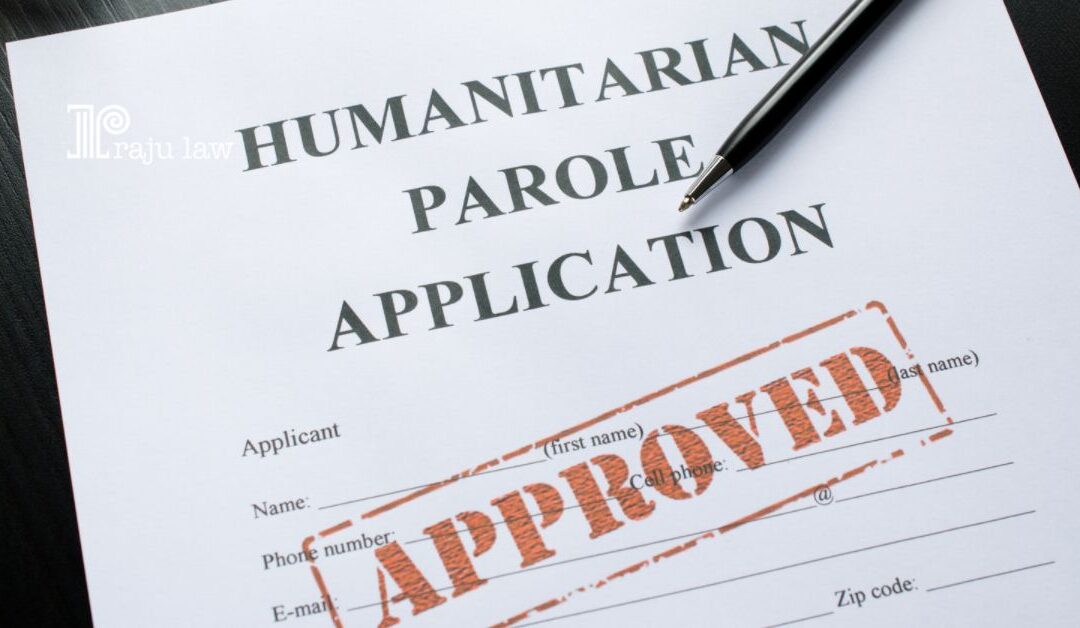Parole is a tool available under the Immigration and Nationality Act (INA) that allows certain individuals to enter the United States and stay for a limited time without requiring an immigrant or non-immigrant visa.
Humanitarian parole allows foreign nationals to enter the United States in an emergency or for reasons of public interest. Humanitarian parole applications are most commonly based on a desire to visit sick family members in the United States, attend funerals, or seek medical treatment in the United States. However, applying for humanitarian parole does not require a specific emergency or humanitarian reason. USCIS will assess applications and approve or deny them on a case-by-case basis.
Who Can Apply for Parole?
Anyone may request parole for themself, or on behalf of another individual, by filing Form I-131, Application for Travel Document. The petitioner is an individual or entity filing Form I-131, Application for Travel Document, on behalf of an individual outside of the United States. The petitioner does not have to be a resident of the United States or related to the beneficiary. The petitioner may also self-petition for parole.
Qualification for Parole
On a case-by-case basis, a USCIS official evaluates each request and the evidence given, considering all circumstances. (See the INA’s Section 212(d)(5).) The petitioner bears the burden of proof proving that parole should be granted. Based on all of the facts presented by the petitioner and any other relevant evidence available to them, USCIS concludes if the petitioner is fit for parole regarding:
- There are urgent humanitarian or significant public benefit reasons for the beneficiary to be in the United States; and
- The beneficiary merits a favorable exercise of discretion.
Humanitarian Considerations
“Urgent humanitarian reasons” does not have a legal or regulatory definition. USCIS officers consider all of the conditions, including (but not limited to) the following:
- Whether or not the circumstances are pressing;
- The effect of the circumstances on the individual’s welfare and wellbeing; and
- The degree of suffering that may result if parole is not authorized.
Identifying who is eligible for parole
On a case-by-case basis, USCIS uses authority by evaluating positive aspects of the record against any bad aspects.
USCIS consider (but are not limited to) the following discretionary factors:
- Whether the purpose of the parole request may be accomplished within a specific, temporary period of time;
- Whether the beneficiary intends to leave the United States once their parole expires or has means to obtain lawful immigration status during the parole authorization period or any re-parole period that is envisioned (where applicable);
- Whether there is evidence of any national security concerns;
- Whether there is evidence of any criminal history or previous immigration violations;
- Whether there is evidence of any previous participation in fraud;
- Whether the beneficiary’s presence would benefit a U.S. citizen or lawful permanent resident or community in the United States;
- Whether the beneficiary will have sufficient financial support while in the United States;
- Evidence of the beneficiary’s character;
- The effect of the beneficiary’s presence on a community in the United States; and
- Whether there are other means, other than parole, that are available to the beneficiary so they can travel to and remain in the United States for the stated parole purpose, such as the ability or inability to obtain a visa.
Undocumented Immigrants Should Not Apply for the First-Time Humanitarian Parole
One should not apply for humanitarian parole if you currently reside in the United States and do not have lawful immigration status or if your allotted stay has expired. Humanitarian parole’s principal goal is to allow foreign residents who are “stranded” outside the United States to enter the country to deal with an emergency.
Applicants do not require a travel document to attend to an emergency crisis in the United States if they are already in the country. It is not essential to apply for humanitarian parole, and it will not grant you legal status. Because USCIS assumes you’re trying to immigrate, your application will certainly be denied.
Parole was never meant to be a permanent solution to humanitarian crises. While parole is a legal way to enter the United States and is extremely useful in certain situations, it is only temporary. It has significant shortcomings for those admitted as parolees who face barriers to returning to their home countries.




